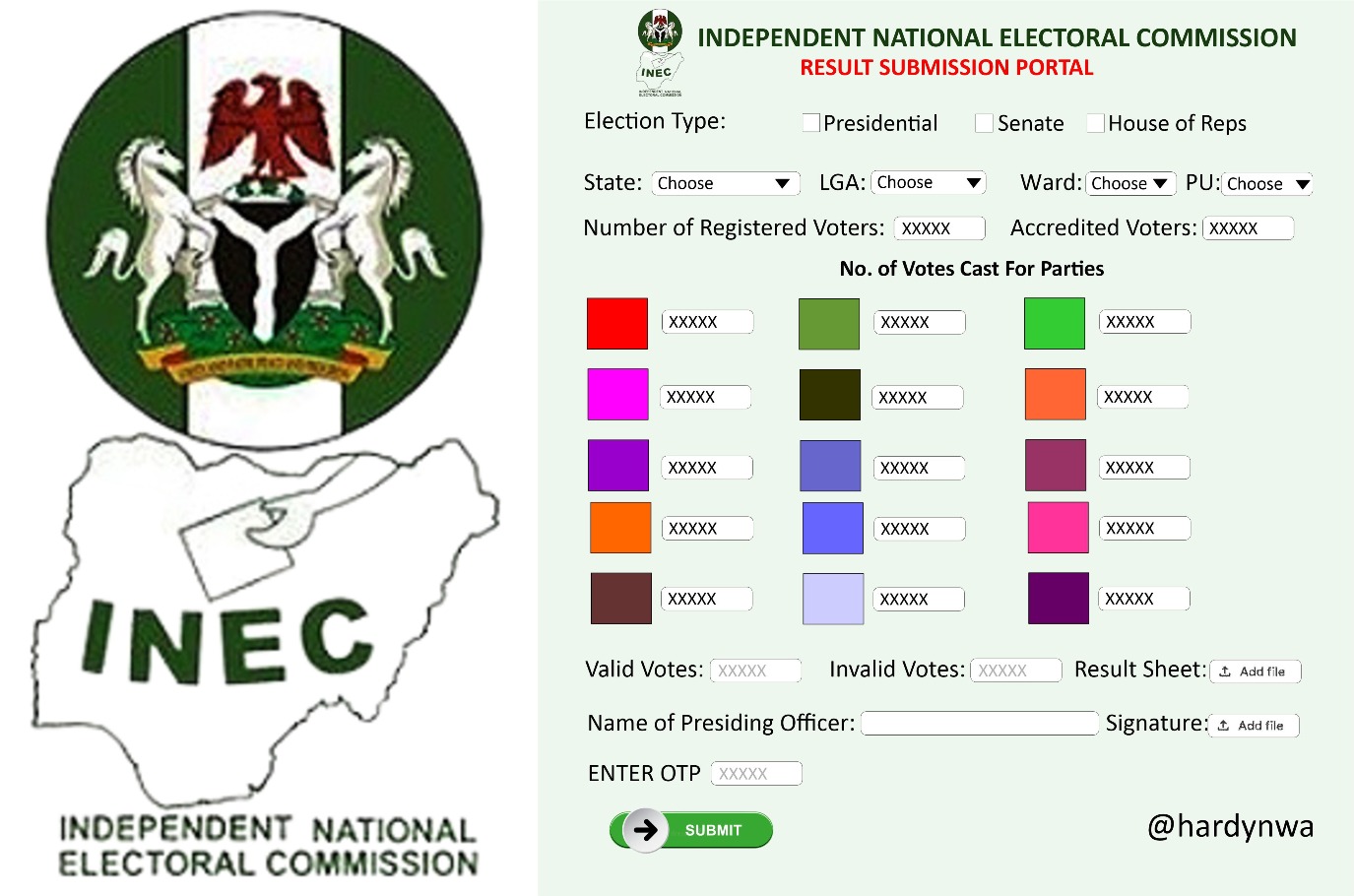Following the conclusion of the presidential and National Assembly elections, questions have been raised about the performance of the Bimodal Voter Accreditation System and Election Result Viewing Portal deployed by the Independent National Electoral Commission to enhance the electoral process. In this piece, Temitayo Jaiyeola writes about how BVAS and IReV underperformed in their first national deployment
The Independent National Electoral Commission’s Bimodal Voter Accreditation System and Election Result Viewing Portal did not live up to expectations during the just concluded presidential and National Assembly elections. The poor performance of BVAS and IReV in their first major stress test might have cast a pall over the 2023 presidential and National Assembly elections, as some of the candidates have already headed for the court to challenge the outcome of the elections.
In their first national deployment, BVAS and IReV did not achieve ease in the electoral process they were designed for, rather they have raised more questions about the integrity of the 2023 elections.
BVAS is a tech device that allows for the identification and accreditation of voters through fingerprints and facial recognition. IReV is an online portal where polling unit-level results are uploaded directly from the polling unit, transmitted and available for public monitoring.
IReV allows members of the public to create personal accounts and monitor uploaded results, increasing the transparency and integrity of the electoral process.
INEC first deployed IReV for the Nasarawa Central by-election in 2020. According to reports, it has been deployed in 105 elections involving 16,694,461 registered voters since then. 32,935 results sheets (Form EC8A) have been so far uploaded from polling units in rural and urban areas.
In 2021, INEC deployed BVAS as a means of overcoming the challenge of over-voting by accrediting voters through fingerprint, iris and facial recognition and eliminating manual voter identification and accreditation. At the time, BVAS was replacing card readers which had failed to read permanent voter’s cards properly.
When BVAS first launched, it was riddled with many problems. In its first deployment in the Isoko South Constituency 1 by-election in Delta State on September 10, 2021, there were reports of presiding officers complaining about the machine’s difficulties to capture the thumbs and faces of some of the voters.
It seemed INEC did not learn from this initial glitch as the presidential, and National Assembly elections of February 25, 2023, were overwhelmed by the same problems. Not only did many BVAS devices fail to capture voters, the IReV platform also did not work in many polling units.
In Rivers State, after the BVAS initially failed to capture the governor, Nyesom Wike, he said, “We are highly disappointed. INEC told us they were ready for the election and that BVAS are working.
“You can see the crowd here; I don’t think that most people will be allowed to vote because of the slow working of the BVAS.”
Many other polling units across the country also recorded malfunctioning BVAS, causing a disenfranchisement of voters. The device failed to curb over-voting with many polling units recording over-voting, leading to the cancellation of results. Prior to this election, INEC chairman, Yakubu Mahmoud, stated that results would be uploaded on its portal to allow individuals to monitor the elections in real time.
According to the head of the country’s electoral commission, BVAS would be used to capture the results and upload them to the portal in PDF format.
He said, “The BVAS confirms that the cards issued by the commission and presented by the voter are genuine and the voter is authenticated using the fingerprint and where it failed, the facial.
“Where both fail, the voter can’t vote. That is a matter of law. After the process is completed at the polling unit, the image of the polling unit result will be taken by the BVAS and uploaded into what we call the INEC Result Viewing Portal where citizens can see polling unit level results as the processes are completed at polling unit level.”
While acknowledging that BVAS had never been deployed on a national scale before, Mahmoud, expressed the commission’s confidence in the technology recently.
This was not the case during the just concluded presidential and National Assembly elections, where many INEC officials failed to upload results at polling units. In many instances, voters waited for hours, in futility, for officials to upload the results of their polling units.
According to many INEC officials, the BVAS device was either not allowing them to upload the results or the network was bad.
A Labour Party agent who did not want his name in print said, “We don’t have the network infrastructure to allow BVAS to work effectively.
“There is no way it can work well. The INEC officials here are complaining about the lack of a network. We need to up the network infrastructure in the country. If the network is good, they would not have issues.”
Prior to this election, questions about network coverage have been raised. The All Progressives Congress National Chairman, Abdullahi Adamu, had expressed doubt over INEC’s ability to deliver a credible election using BVAS and IReV.
Commenting on the reservation of the APC chairman, the Chief Operating Officer, Association of Telecommunications Companies of Nigeria, Ajibola Olude, in an interview with The PUNCH stated that the country’s network was mature enough for electronic transmission of results.
He said, “We are ready for electronic transmission of results. Our network has matured to the level that it can be used for result transmission.”
According to Yiaga Africa, as of 7.00 pm on election day, results had not been uploaded from any of the 176,606 polling units where results were expected on INEC’s portal after the close of voting and counting in several polling units.
INEC eventually started uploading results and later issued a public apology, explaining its incompetence. According to the commission, its result portal was experiencing technical glitches because it did not scale up its IReV platform for a nationwide election.
It said, “The problem is totally due to technical hitches related to scaling up the IReV from a platform for managing off-season, state elections, to one for managing nationwide general elections. It is indeed not unusual for glitches to occur and be corrected in such situations.”
In 2023, INEC got N305bn from the Federal Government for the 2023 elections. It budgeted N114.26bn for ICT-related expenses, which dwarfed the N18.8bn that was used to execute the presidential and National Assembly elections in 2015.
As of 11:35 am, March 2, 2023 (a day after declaring the APC candidate as the winner of the 2023 presidential election), INEC had only uploaded 149,153 (84.5 per cent) polling unit results out of 176,606 on its IReV portal.



